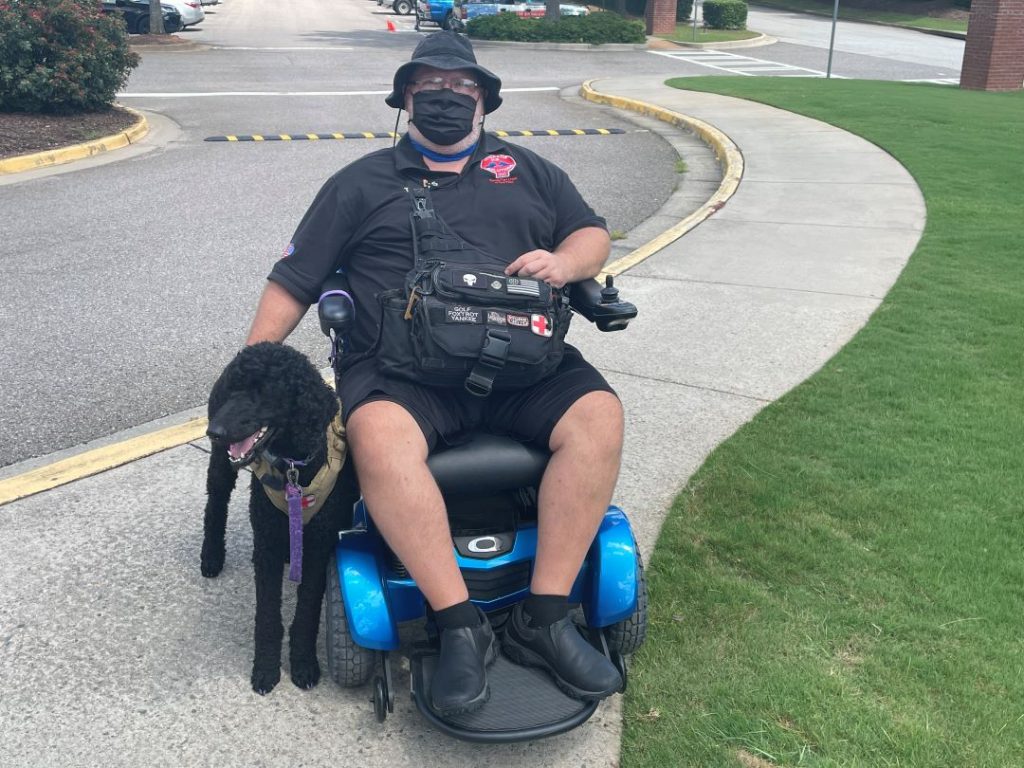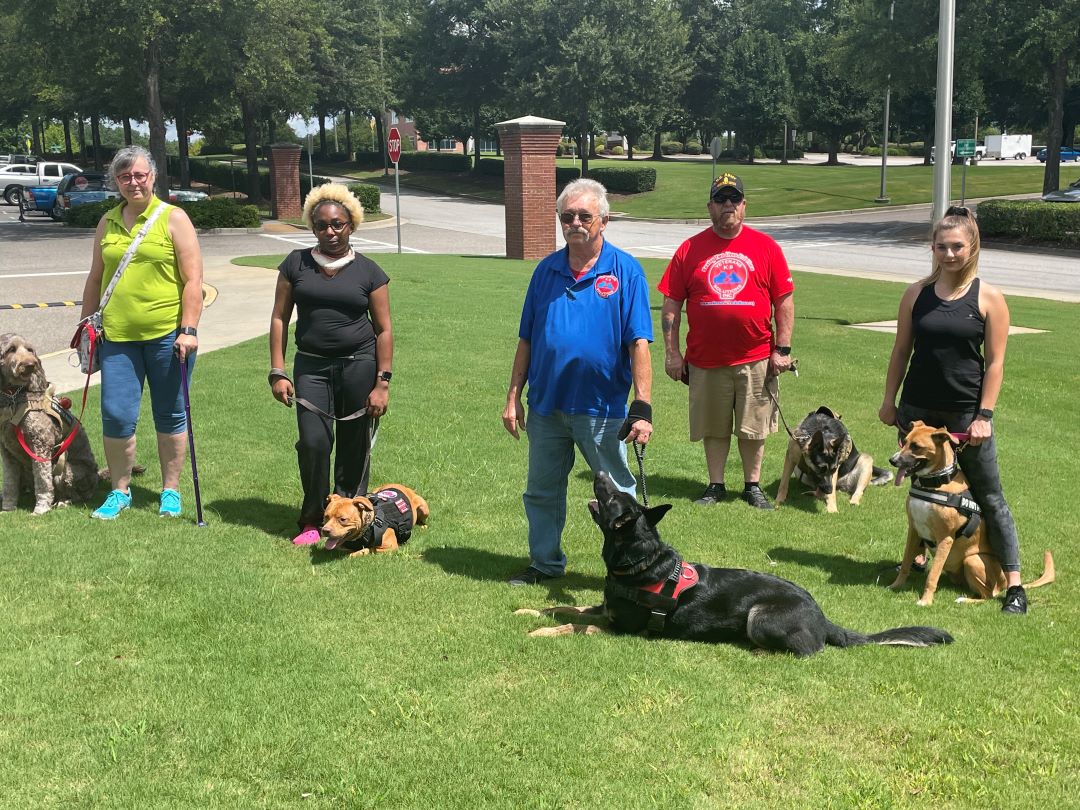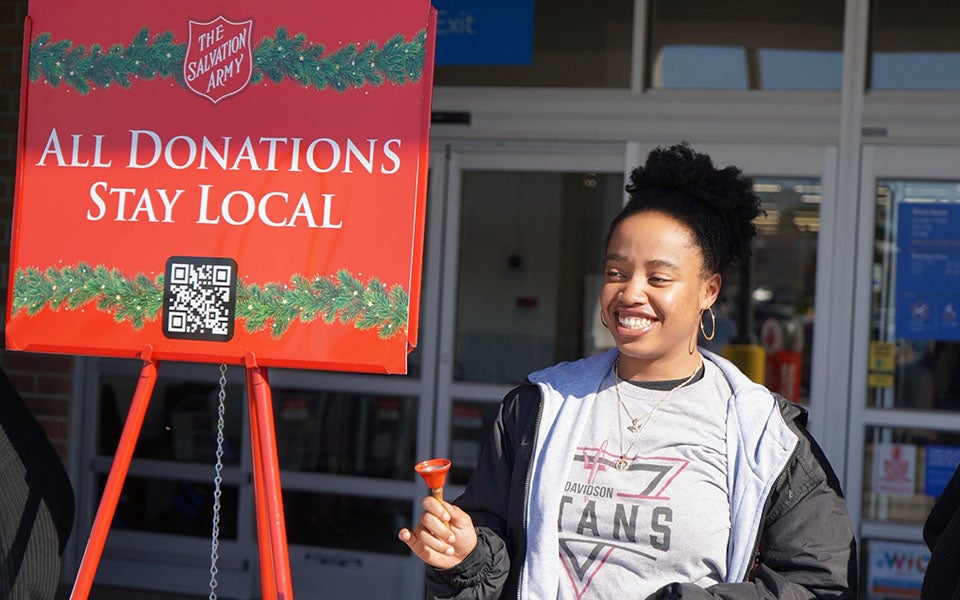Vietnam War Navy veteran Jerry Lyda decided a long time ago that he was going to use his experience training dogs to help fellow servicemen who were disabled have a better quality of life. The Puppies Assisting Wounded Servicemembers for Veterans Therapy Act, or PAWS Act, is now on President Joe Biden’s desk and would bring Lyda further along in that mission.
Lyda started Veterans K9 Solutions with his son Jay in 2010. The organization specializes in training service canines and coupling them with disabled veterans.
MORE: Afghanistan: Veterans Mental Health
Lyda was inspired to start Veterans K9 Solutions by a desire to help those like his father-in-law, who he said was a functioning alcoholic with PTSD. Training dogs, however, has been a mainstay for him since training dogs to hunt with his family during his childhood in upstate South Carolina. Applying his knowledge to foster healing for veterans is a matter of understanding a dog’s urges and instincts, Lyda said.
“A dog is a dog; it has the same drives it had thousands of years ago,” said Lyda. “You’ve just got to find that drive to motivate him to do what you want done.”
The canine disposition lends itself for service training because of the bond with humans, and the bond between dogs and warriors has been a staple of domestication for about as long as humans have kept dogs.
[adrotate banner=”51″]
Thomas Gregg, Navy veteran and new training director with Veterans K9 Solutions, notes the bond between dogs and the military.
“War dogs have been around for over a thousand years,” said Gregg. “They are here to help us live a normal life.”
The process of connecting a veteran with a canine is an involved process that generally entails a appointment by Veterans Affairs. In the case of Veterans K9 Solutions, the VA sends referrals based on a given disability. Then Veterans K9 Solutions sends the veterans an application package and arrange for an interview before entering the program.

If the applicant already has a dog, the organization will try to use it, but every dog that comes through the process must be temperament tested to discern whether the animal might be a good candidate as a potential service dog.
Service dogs training in Georgia must be certified through training schools like Lyda’s, and have three basic phases in their training: basic obedience, in which they must pass a Canine Good Citizen test; followed by a more rigorous obedience regimen; and finally be brought out in public space.
“We’re tough. We’re hard. But at the same time, we’re fair, and we’re balanced,” said Lyda. “So, we can train the dog depending on the disabilities.”
Canines are then trained according to a veteran’s given need. Post-traumatic stress disorder service dogs, for example, are usually first taught to touch and then the training escalates to touching with the purpose of alleviating anxiety or depression.
“In my case, I have mobility issues,” said Lyda. “A tight leash makes me feel like I’m walking with a cane or using a handrail.”
[adrotate banner=”19″]
Prescriptions are required to secure service dogs, and currently a directive forbids VA psychiatrists from prescribing service dogs for PTSD. This is an impediment addressed in the PAWS act, which would require the VA to implement a five-year program assessing the effectiveness of using service dogs to treat post-deployment mental health by allowing disabled veterans to adopt them.
The bill was passed unanimously in the U.S. Senate Aug. 6 and has come after years of lobbying by organizations such as the Association of Service Dog Providers for Military Veterans, of which Veterans K9 Solutions is a member.
Gregg notes the rates of suicide among veterans as one reason the passing of the PAWS Act represents such a profound benefit for retired servicemembers and trainers. The average number of veteran suicides in the U.S. is approximately 17 per day according to the National Veteran Suicide Prevention Annual Report.
“It will force the VA to do its job,” said Gregg regarding the PAWS Act. “Any number above zero is too many.”
MORE: Afghanistan: Don’t Blame One Administration, Blame Several, Retired Army Officer Said
For the PAWS Act to be signed into law would be a profound step in the right direction. For Lyda, Gregg and Veterans K9 Solutions that path is ultimately about the wholeness, healing and autonomy of disabled U.S. servicemembers.
“The dog literally gives me that independence,” said Gregg.
For more information about Veterans K9 Solutions visit its website at https://www.veteransk9solutions.org/.
The National Veteran Suicide Prevention Annual Report is at https://www.mentalhealth.va.gov/suicide_prevention/data.asp
Skyler Q. Andrews is a staff reporter covering Columbia County with The Augusta Press. Reach him at skyler@theaugustapress.com.
[adrotate banner=”51″]












